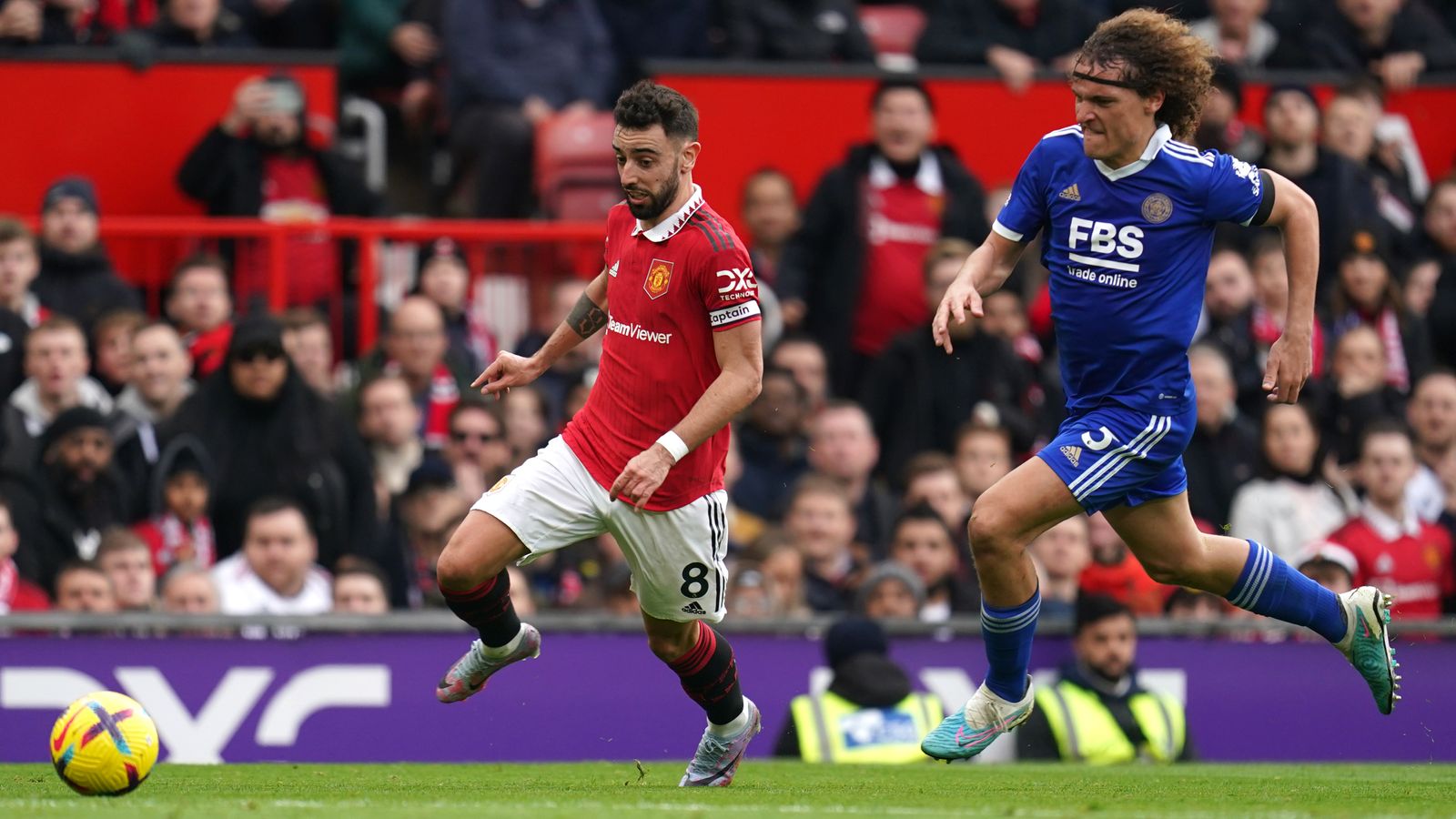New independent regulator to oversee financial stability of English football and stop clubs joining breakaway leagues
An independent regulator for English football will be introduced to ensure clubs are sustainably run after a fan-led government review.
The regulator will implement a licensing system for all clubs from the Premier League down to the National League.
The system will force clubs to prove their business models are financially sound and that they have good corporate governance before being allowed to compete.
Clubs will also be required to seek regulatory approval for any sale or change of stadium, and fans will be given a greater say in stopping owners changing club names, badges and home shirt colours.
Read more:
Regulator could be good news for clubs lower down the pyramid
Who is in the running to buy Man Utd?
The regulator will also be given the power to stop English football clubs from joining new competitions that “harm the domestic game”.
Six English teams – Manchester United, Liverpool, Arsenal, Tottenham Hotspur, Chelsea and Manchester City – were forced to pull out of a proposed European Super League in April 2021 after widespread condemnation and angry protests by fans.
The full results of the fan-focused review, led by Conservative MP Tracey Crouch, will be published today in a government white paper.
The review was launched in 2021 after historic clubs Bury and Macclesfield Town went out of business as a result of mismanagement.
Since the Premier League was launched in 1992, 64 clubs have been put into administration.
The review says there continues to be “serious financial risk” in the leagues. The combined net debt of clubs in the Premier League and Championship was £5.9bn at the end of the 2020/21 season.
Prime Minister Rishi Sunak welcomed the review, saying: “Since its inception over 165 years ago, English football has been bringing people together, providing a source of pride for communities and inspiration to millions of fans across the country.
“Yet despite the success of the sport both at home and abroad, we know that there are real challenges which threaten the stability of clubs both big and small.
“These bold new plans will put fans back at the heart of football, protect the rich heritage and traditions of our much-loved clubs and safeguard the beautiful game for future generations.”
It is not clear what the review means for countries that want to own UK football clubs with a poor record on human rights.
There was backlash when Saudi Arabia bought Newcastle United in 2021, with Amnesty International accusing the kingdom of trying to “sportswash their appalling human rights record with the glamour of top-fight football”.
On Thursday, sports minister Stuart Andrew repeatedly refused to say if countries where rights are supressed should be allowed to own clubs.
He told Sky News: “We have investment in this country on a wide range of businesses and not it’s for me to say just because they’re from a certain country that they shouldn’t own a football club, that would be inappropriate.”
He said the regulator will assess whether people wanting to invest in clubs “have the best interests of those clubs at heart, have the right finances in place and where that money has come from”.
But he insisted it was “not just about finances” saying the regulator will ensure we know exactly who owns a football club because “sometimes some clubs don’t even know who the actual owner is”.
Shadow secretary for digital, culture, media and sport Lucy Powell said the government should urgently bring forward legislation.
“In the 15 months it’s taken the government to finally publish a football white paper, Derby County nearly went under, Oldham Athletic was relegated, Chelsea changed hands and Manchester United, Newcastle, Liverpool and Bournemouth were all put up for sale,” she said.
“The Premier League and English Football League still haven’t reached a deal on finances. And now a European Super League 2.0 is back on the table.”
Click to subscribe to the Sky News Daily wherever you get your podcasts
A similar review into the future of domestic women’s football is already underway.
The government is launching another review to examine the visa system for elite footballers in England “to examine how the game can continue to attract the best global talent while maintaining strong support for young domestic players to develop from the grassroots level”.
For all the latest business News Click Here


